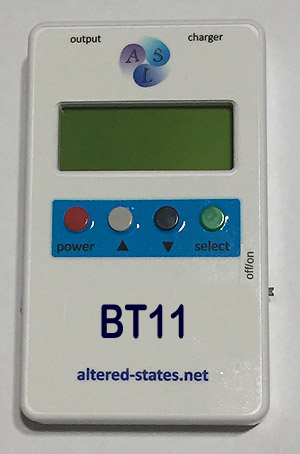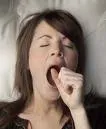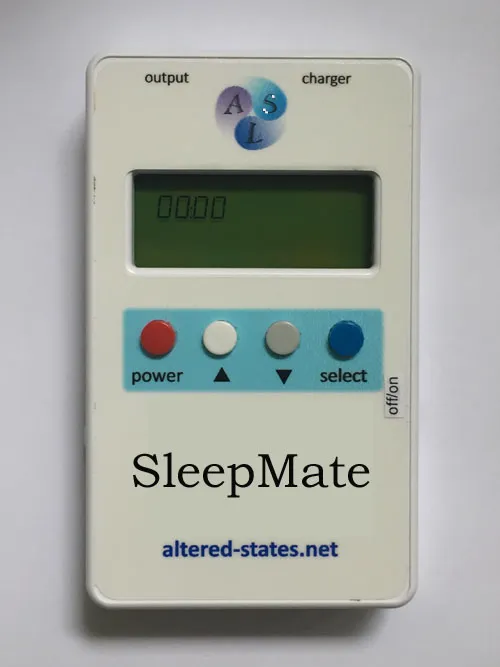Sleep Mate 3
NZ$299.95
Approx USD$180.07


Everyone needs it, but not everyone gets
enough of it. It’s not sex; it’s sleep. Humans
are animals requiring sleep to continue the daily routine:
school, work, gym, internship, family, friends, and so
on.
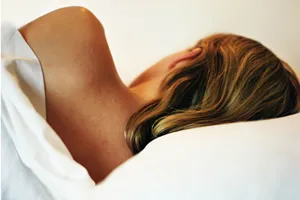
Sleep disorders are a highly common medical
issue that affects millions of people each year. While
some people suffer from mild sleeping problems, such
as the occasional nightmare, others have extremely severe
sleep disorders that can negatively affect their health
if left untreated.
At some point in life,
you are likely to suffer from lack of sleep. However,
while your lifestyle, work demands and family responsibilities
may keep you from getting the sleep you need, a
chronic lack of sleep can trigger the development
of serious conditions, including heart disease,
depression and hypertension. Common symptoms of
lack of sleep include fatigue, blurry vision and
irritability. |
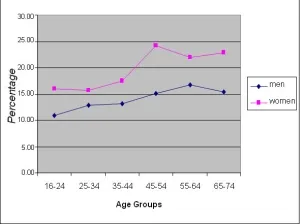

In fact, 95 percent of people suffering
from a sleep disorder remain undiagnosed. This staggering
number means that a huge number of people aren’t
getting the treatment they need, putting them in danger
of permanently damaging their health.
Do you Wake
Up Tired?
Your Sleep
Doesn't feel Restorative ?
"In today’s “Health
Journal” column, Melinda Beck reports that many
people who think they are getting enough shut-eye may
actually be getting poor quality sleep, with not enough
of the restorative phases. The REM, or Rapid Eye Movement
phase, in which dreaming occurs, is crucial for preserving
memories, learning, creativity, problem solving and emotional
balance, while deep, or slow-wave sleep, when the body
releases human growth hormone, is necessary for physical
development and repair. However, both of these sleep
phases decline with age and are vulnerable to disruptions,
including caffeine, alcohol and anxiety (which
can even include anxiety about lack of sleep).
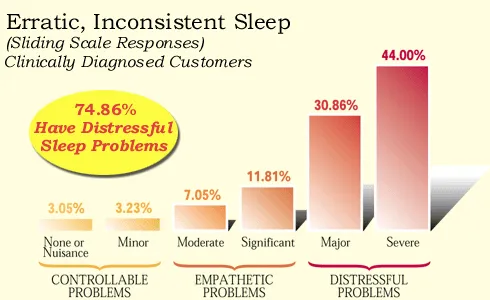
How do you know if you haven’t gotten
enough restorative sleep?
One tip-off is if you have trouble waking up in the morning and feel
excessively sleepy during the day". Source
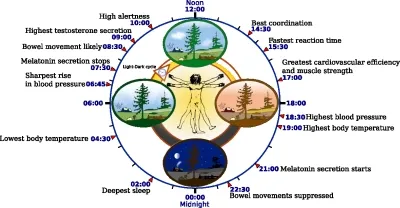
Click to enlarge
Insomnia
Insomnia is a sleep problem that is defined
as inadequate or poor-quality sleep due to difficulty
falling asleep, difficulty staying asleep, waking up
too early and not being able to get back to sleep and/or
waking up feeling unrefreshed. According to NSF poll
data, insomnia is the most
common of all sleep problems and affects
approximately 58 percent of adults.
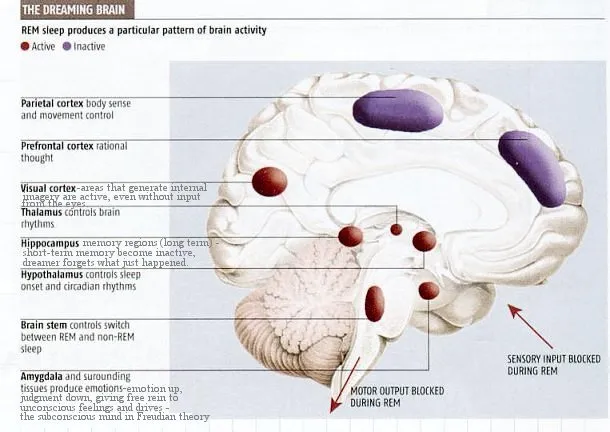
There data also show that while insomnia
affects people of nearly every demographic, it is especially
prevalent among elderly adults; sixty-seven percent of
older adults (age 65 and older) report that they have
trouble sleeping at least a few nights a week. Women,
who experience higher rates of anxiety and depression
and hormonal fluctuations associated with menstruation,
pregnancy and menopause, are also more likely to suffer
from insomnia than men, according to the National Institutes
of Health.
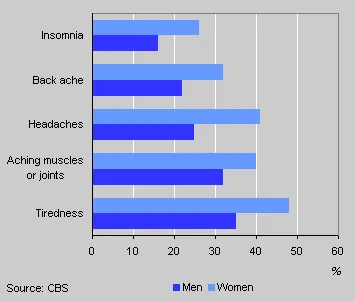
Negative impact od jobs on
Sleep, shift workers are feeling the effects
of their schedules. A study
of 437 day workers and 246 rotating shift workers
at the Universidad de Buenos Aires in Argentina
found that shift workers have seriously lower
levels of serotonin, a hormone that plays a role
in regulating
sleep and mood, than their day-working counterparts.
Unfortunately, lower levels of serotonin are
associated with anger, depression, and anxiety,
as well as
poor sleep. Another study, conducted by Harvard
Medical School—this one of more than 78,000
women who worked rotating night shifts over a 10-year
period—found that shift work significantly
increased a woman’s risk of breast cancer.
A second team of Harvard researchers studied
the same group, and they found that women who
worked a rotating night shift at least three
nights per month for 15 or more years had an
increased risk of colorectal cancer.
And a third team of Harvard researchers
studied more than 53,000 women who worked rotating
shifts and found that night work increased
the women’s risk of endometrial cancer
by 47 percent—and actually doubled the
risk of endometrial cancer in obese shift workers.
It’s this type of research that led
the World Health Organization late in 2007
to classify shift work as a “probable” cause
of cancer—a position that the American
Cancer Society indicates it is likely to follow
|
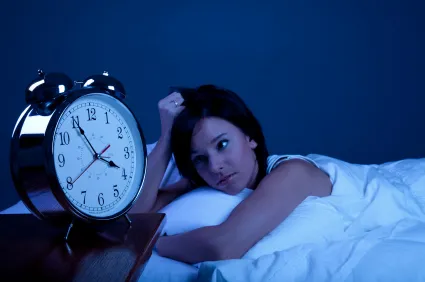
| It’s a seemingly insignificant deficit, but
two hours of sleep loss, studies report, have the
same effect on your brain as knocking back two or
three 12-ounce beers. It’s also an amount that
week after week, year after year, may build up to
a huge effect. |
Disrupted
Sleep
Any condition in which your sleep doesn’t follow the typical
sleep phase cycle or doesn’t stay in one or more cycles for long
enough is a disrupted sleep disorder. Those who have disrupted sleep
tend to not only get less sleep but also to not experience as deep
of sleep. Unfortunately, this often means that these individuals don’t
reach the levels of sleep necessary to be considered “restorative
sleep.”
Give your Wife
or Mum the gift of sleep
That sleepless night that makes you grouchy
and tired the next day can be a killer — literally.
New research shows that getting less than 5
hours of sleep a night increases your risk
of death from cardiovascular disease. In a
study of 4,600 men and women aged 35 to 55,
researchers at University College London and
the University of Warwick in the United Kingdom
found that women who slept less than 8 hours
per night had a higher risk of dying from cardiovascular
disease than men. Differences in hormone levels
may play a role.
According to data recently published in
the journal Sleep, women who slept less than
5 hours per night had significantly higher
levels of the inflammatory markers that are
indicators for heart disease.
Source |
| Lack of sleep could be fatal: Scientists uncover
86 disorders linked to lack of shut-eye
Read more: |
Sleep
deprivation
A
considerable amount of sleep-related behavior is
apparently hard-wired into human biology - humans
in all cultures get tired, require sleep for good
health, and have similar symptoms when sleep deprived
"Lack of sleep can affect your immune system.
Studies show that people who don't get quality sleep
or enough sleep are more likely to get sick after
being exposed to a virus, such as a common cold virus.
Lack of sleep can also affect how fast you recover
if you do get sick.
During sleep, your immune system releases proteins
called cytokines, some of which help promote sleep.
Certain cytokines need to increase when you have
an infection or inflammation, or when you're under
stress. Sleep deprivation may decrease production
of these protective cytokines. In addition, infection-fighting
antibodies and cells are reduced during periods
when you don't get enough sleep." Source |
The body and brain require adequate hours
of sleep to perform optimally. Sleep deprivation is a
medical condition that affects the normal functioning
of the body and brain due to lack of sleep. Though it
is not considered a disorder, sleep deprivation can effect
general well-being. Problems like weak memory, hand-eye
co-ordination and reasoning abilities can surface during
bouts of sleep deprivation.
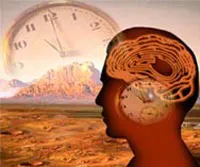
Indications of sleep deprivation include
drowsiness during the day, brief spells of sleep and
falling into sleep immediately after lying down. Sleep
deprivation needs to be addressed as prolonged periods
may affect the immune system

The long term consequences of sleep deprivation
affect the restorative functions of the body, decreasing
the quality of life. Symptoms for these sleep disorders
include the inability to fall asleep or stay asleep,
breathing or snoring problems, frequent awakenings, stops
in breathing during sleep, dozing off in day activities,
difficulty concentrating, excessive sleepiness, profuse
sweating, excessive limb movements during sleep, leg
cramps or “crawling” feelings, or abnormal
behavior at night. Despite the fact about 70 million
Americans suffer from a sleep disorder, many cases remain
undiagnosed.
1. Lack of Sleep Makes You Drunk
According to researchers sleep deprivation is
as bad as alcohol consumption in how it affects
our reflexes and critical thinking ability. It
makes us dangerous drivers and bad decision makers.
Consider the tragedy of the Exxon Valdez or just
what could happen if you drift off while driving.
Getting sleep could save your life and/or someone
else’s.
2. Lack of Sleep Makes You Fat
Not getting enough sleep is a double whammy on
the chemicals in your body. Leptin levels drop
when you don’t get enough sleep. Leptin is
responsible for making you feel full. Conversely
lack of sleep increases your levels of ghrelin,
which signals your appetite. So you get hungrier
and you don’t feel full when you eat.
On top of that, sleep affects the function of
your prefrontal cortex, the part of the brain that
deals with processing inhibitions. So not only
are you hungry and insatiable, but you’re
far more likely to make bad choices and eat junk
food.5 And it starts early. A recent study shows
teens who get fewer than eight hours per night
of sleep have an average BMI of 3.8-4.7% higher
than their counterparts who get regular sleep.
3. Lack of Sleep Can Make You Crazy and/or Kill
You
Lack of sleep puts you at risk not only for obesity,
but also for heart disease, heart attacks, hypertension,
and diabetes. A lack of sleep has been shown to
lead to or worsen type 2 diabetes.7 It can also
increase your risk for colon cancer.8 If you're
lucky and avoid a fatal disease, you might just
go crazy - sufferers of sleep apnea have been shown
to be twice as likely to develop dementia as they
age.9 Recent Alzheimer’s research also suggests
it is during our sleep that our bodies clean up
any “plaque” in our brains. A build-up
of this plaque is related to the onset of Alzheimer’s.
A lack of sleep, therefore, could put you at a
higher risk for developing the disease.
4. Lack of Sleep Makes You Less Manly
According to the Journal of the American Medical
Association, University of Chicago scientists found
sleep deprived research subjects suffered a decrease
in testosterone levels the equivalent of aging
10 to 15 years. Low testosterone cannot only effect
your sex life, but your energy level and ability
to concentrate. For younger men proper testosterone
levels also play an important role in forming strength,
muscle mass, and bone mass needed for the rest
of their lives.Source |
Sleep Deprivation
causes:
 Not
allowing enough time for sleep
Not
allowing enough time for sleep
 Sleep
disorders
Sleep
disorders
 Constant
worry or stress
Constant
worry or stress
 Repeated
awakenings (noisy, loud roommates or neighbors)
Repeated
awakenings (noisy, loud roommates or neighbors)
 Night
shifts
Night
shifts
 Crossing
time zones (frequent flyers)
Crossing
time zones (frequent flyers)
 Medical
illness causing pain, difficulty breathing, etc.
(asthma, flu, common cold, sports injury, etc.)
Medical
illness causing pain, difficulty breathing, etc.
(asthma, flu, common cold, sports injury, etc.)
 Sleep
deprived symptoms:
Sleep
deprived symptoms:
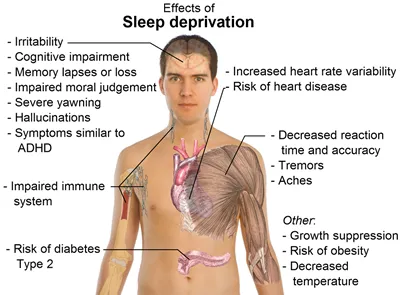
Sleep deprivation - As a cause of death,
Sleep deprivation - As a cause of depression, Sleep deprivation
- As a cause of diabetes, Sleep deprivation - As a cause
of obesity, Sleep deprivation - Effects on growth, Sleep
deprivation - Effects on the brain, Sleep deprivation
- Impairment of ability,
During sleep, our bodies perform a number
of functions which are triggered by the night-time hormone
called melatonin. This hormone slows down the body’s
respiratory system, and clears our cells of toxins. So
when we do not get the sleep at night, this hormone is
not activated, and we become more susceptible to various
health problems.
Prolonged periods of sleep deprivation
can lead to memory loss, nausea and a weaker immune system.
Sleep deprived persons are also known to succumb to
 delirium,
delirium,
 hallucinations,
hallucinations,
 nausea,
nausea,
 alcoholism,
alcoholism,
 involuntary
rapid eye movement,
involuntary
rapid eye movement,
 slurred
speech
slurred
speech
 weight
gain
weight
gain
Sleep deprivation also affects our ability
to perform physical tasks. Workers on night shift show
not just declining performance but also difficulty in
comprehending commands. Physical symptoms include
 awkwardness
in walking, picking up and lifting objects.
awkwardness
in walking, picking up and lifting objects.
One of the serious consequences of sleep
deprivation is on the body’s ability to absorb
glucose, leading to
 Type
2 diabetes. As serious is the impact on the functioning
of the brain. Studies have proved that inadequate sleep
affects
Type
2 diabetes. As serious is the impact on the functioning
of the brain. Studies have proved that inadequate sleep
affects
 memory
performance.
memory
performance.
 Heart
disease and mental ailments like bipolar disorder and
psychosis have been linked to sleep deprivation. Rapid
eye movement (REM) is also believed to aggravate clinical
depression in affected persons. As for children, inadequate
sleep is often the reason for their irritability and
display of violent moods.
Heart
disease and mental ailments like bipolar disorder and
psychosis have been linked to sleep deprivation. Rapid
eye movement (REM) is also believed to aggravate clinical
depression in affected persons. As for children, inadequate
sleep is often the reason for their irritability and
display of violent moods.
 Trouble
waking up on time
Trouble
waking up on time
 Falling
asleep or getting extremely sleepy during activities
such as driving
Falling
asleep or getting extremely sleepy during activities
such as driving
Studies
show that 85 percent of police officers, 80 percent
of regional pilots, and 48 percent of air-traffic
controllers nod off on the job. And a frightening
41 percent of medical workers admit they’ve
made fatigue-related errors. In one survey alone,
19 percent report “worsening” a patient’s
condition. What’s more, the Exxon Valdez
grounding, the space shuttle Challenger accident,
and the Three Mile Island nuclear accident have
all been blamed, at least in part, on fatigue
related to sleep loss. |
Having a
hard time staying awake
Needing a day-time nap
Short-term memory loss
A 2001 study at Chicago Medical Institute suggested
that sleep deprivation may be linked to more serious
diseases, such as heart disease and mental illnesses
including psychosis and bipolar disorder.[18] The
link between sleep deprivation and psychosis (psychiatric
disorders) was further documented in 2007 through
a study at Harvard Medical School and the University
of California at Berkeley. The study revealed,
using MRI scans, that lack of sleep causes the
brain to become incapable of putting an emotional
event into the proper perspective and incapable
of making a controlled, suitable response to the
event... |
 Uncontrolled
emotional responses
Uncontrolled
emotional responses
It has long been suspected that sleep deprivation can have significant
effect on mood. Many of us feel irritable and distractible if we haven’t
slept enough, and you may have had the experience of being up all night
and feeling a little bit “high” in the morning. It has
also been known for centuries that mood disorders are very commonly
associated with sleep disturbances, and sleep disturbance is often
the first sign that someone with mood problems is running into trouble.
So mood and sleep must be linked in some way.
Schumann Shield Package
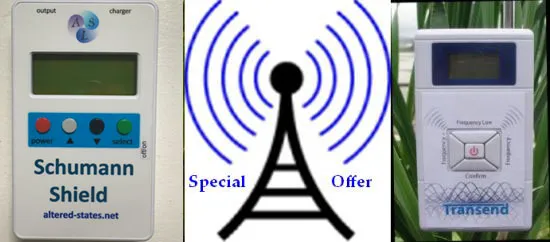
Make the Schumman frequencies strong in your home
,and see the difference in moods and sleep,, Source
|
 Dark
circles under the eyes, aching muscles, dizziness,
headaches, hyperactivity and hypertension are other
symptoms sleep deprived persons are know to suffer
from.
Dark
circles under the eyes, aching muscles, dizziness,
headaches, hyperactivity and hypertension are other
symptoms sleep deprived persons are know to suffer
from.
 Physiological
effects
Physiological
effects
When you are suffering from insomnia,
the physical effects of sleep deprivation include
exhaustion, fatigue and a general lack of energy.
These might seem somewhat obvious, but it then
translates into even bigger problems, such
as emotional instability, mood swings, stress,
pessimism, and anger. Recent studies have shown
that those who are too tired to drive have
the same characteristics as those who have
a high blood alcohol level, and another study
found that those who feel like they are going
to fall asleep are actually worse drivers than
those who get behind the wheel when they are
drunk. These effects include slow mental capacity,
being tired at intermittent times, cramps on
your muscles, and an inability to focus or
concentrate on tasks. Among the physical effects
of sleep deprivation that are the worst is
the inability for the body to metabolize glucose.
This results in physical effects that are similar
to aging and diabetes in its early stages.
Being sleep deprived on a regular basis can
decrease the stretchiness of your skin, which
can lead to wrinkles. Your skin's pigment can
also change if you don't get enough sleep.
In addition, your eyesight can suffer, and you can get those dark circles under your eyes.
Some people who have not gotten enough rest
even suffer from color blindness.
A 1999 study[21] found that sleep deprivation
resulted in reduced cortisol secretion the next
day, driven by increased subsequent slow-wave sleep.
Sleep deprivation was found to enhance activity
on the Hypothalamic-pituitary-adrenal axis (which
controls reactions to stress and regulates body
functions such as digestion, the immune system,
mood, sex, or energy usage) while suppressing growth
hormones. The results supported previous studies,
which observed adrenal insufficiency in idiopathic
hypersomnia. |
Diabetes
 In
2005, a study of over 1400 participants showed that participants
who habitually slept few hours were more likely to have
associations with Diabetes Type 2
In
2005, a study of over 1400 participants showed that participants
who habitually slept few hours were more likely to have
associations with Diabetes Type 2
Effects
on the brain
 Sleep
deprivation can adversely affect brain function.[16]
A 2000 study, by the UCSD School of Medicine and the
Veterans Affairs Healthcare System in San Diego, used
also functional magnetic resonance imaging technology
to monitor activity in the brains of sleep-deprived subjects
performing simple verbal learning tasks.[17] The study
showed that regions of the brain's prefrontal cortex
displayed more activity in sleepier subjects. Depending
on the task at hand, the brain would sometimes attempt
to compensate for the adverse effects caused by lack
of sleep.
Sleep
deprivation can adversely affect brain function.[16]
A 2000 study, by the UCSD School of Medicine and the
Veterans Affairs Healthcare System in San Diego, used
also functional magnetic resonance imaging technology
to monitor activity in the brains of sleep-deprived subjects
performing simple verbal learning tasks.[17] The study
showed that regions of the brain's prefrontal cortex
displayed more activity in sleepier subjects. Depending
on the task at hand, the brain would sometimes attempt
to compensate for the adverse effects caused by lack
of sleep.
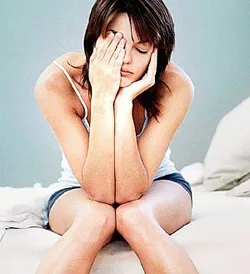
 Effects
on growth
Effects
on growth
Loss of sleep may serve to decrease nocturnal
IL-6 levels, with effects on the integrity of immune
system functioning. Alternatively, given the association
between sleep stages and IL-6 levels, depressed or aged
populations who show increased amounts of REM sleep and
a relative loss of slow wave sleep may have elevated
nocturnal concentrations of IL-6 with implications for
inflammatory disease risk. Source
 Effects
on the healing process
Effects
on the healing process
Without proper sleep, the body can not
recovery and rejuvenate for the next day. Sleep
deprivation is a stress induced complication
but can also lead to additional stress upon the
body. For individuals who suffer from injury,
sleep deprivation can have an adverse affect
on the healing and recovery process.source

Do you get into bed feeling tired, ready for
sleep,and suddenly just wake up?.Check your surroundings,
are
there electrical outlets, phone or laptop chargers,
50-60hz magnetic fields, if so try turning them
off.. Check your enviroment with one of these meters,
you might be horrified to see the crazy magnetic
fields your laying in. Standard
meter High Sensitivity EMF meter |
 Attention
Attention
 Impairment
of ability
Impairment
of ability
A 2000 study by the UCSD School of Medicine and the Veterans Affairs
Healthcare System in San Diego, used functional magnetic resonance
imaging (fMRI) technology to monitor activity in the brains of sleep-deprived
subjects performing simple verbal learning tasks. The study showed
that regions of the brain’s prefrontal cortex (PFC) displayed
more activity in sleepier subjects. Depending on the task at hand,
in some cases the brain attempts to compensate for the adverse effects
caused by lack of sleep.
 Obesity
Obesity
Research by Warwick Medical School at the University of Warwick has
found that sleep deprivation is associated with an almost a two-fold
increased risk of being obese for both children and adults.Source
 Aging
Aging
A University of California, San Diego, psychiatry study of more than
one million adults found that people who live the longest self-report
sleeping for six to seven hours each night.[19] Another study of sleep
duration and mortality risk in women showed similar results.[20] Other
studies show that "sleeping more than 7 to 8 hours per day has
been consistently associated with increased mortality,"
The
Gift of Sleep
CES reduces
time to fall asleep, increases time spent in deepest
sleep and, the amount of time in bed, spent asleep.
It also reduces confusion and bewilderment and increases
IQ in recovering addicts.
Studies discovered that while Cranial Electrotherapy
does not always"put a person to sleep", it
does accomplish some very therapeutic changes in the
sleep patterns of people who complain of insomnia.
The studies below show that whether measured by the patient's
own ratings, psychiatrists ratings or by electroencephalograph
or polygraph recordings before and after Cranial Electrotherapy
treatments, the following effects of CES in insomnia
can be expected:

 1.
Sleep onset latency is reduced. That is, once a person
has retired for the evening, the amount of time it takes
him to actually fall asleep is reduced from one to two
hours or more to the more normal twenty minutes or less.
1.
Sleep onset latency is reduced. That is, once a person
has retired for the evening, the amount of time it takes
him to actually fall asleep is reduced from one to two
hours or more to the more normal twenty minutes or less.

 2.
The number of awakenings during the night are reduced.
That is, while most insomniacs awaken three or more times
during the night and have difficulty falling asleep again,
those treated with Cranial Electrotherapy typically awaken
no more than once or twice following therapy, with most
reporting no awakenings. Furthermore, after awakening,
they return to sleep much more promptly than before
2.
The number of awakenings during the night are reduced.
That is, while most insomniacs awaken three or more times
during the night and have difficulty falling asleep again,
those treated with Cranial Electrotherapy typically awaken
no more than once or twice following therapy, with most
reporting no awakenings. Furthermore, after awakening,
they return to sleep much more promptly than before

 3.
Cranial Electrotherapy treated patients spend more time
in stage four sleep following CES treatments. That is,
patients spend more time in the deepest, most restful
stage of sleep than they did prior to Cranial Electrotherapy
treatment. It should be noted that some patients who
have deprived themselves of REM sleep - the stage during
which dreaming occurs - by taking drugs or alcohol as
a sleeping aid, sometimes spend the first two or three
nights in unusually vivid dream states when first starting
CES treatments. This is considered another indication
of the therapeutic effectiveness of Cranial Electrotherapy
in that persons are known to become increasingly disorganized
mentally, some even to the point of psychotic-like symptoms,
when they do not engage in the normal amount of dreaming.
3.
Cranial Electrotherapy treated patients spend more time
in stage four sleep following CES treatments. That is,
patients spend more time in the deepest, most restful
stage of sleep than they did prior to Cranial Electrotherapy
treatment. It should be noted that some patients who
have deprived themselves of REM sleep - the stage during
which dreaming occurs - by taking drugs or alcohol as
a sleeping aid, sometimes spend the first two or three
nights in unusually vivid dream states when first starting
CES treatments. This is considered another indication
of the therapeutic effectiveness of Cranial Electrotherapy
in that persons are known to become increasingly disorganized
mentally, some even to the point of psychotic-like symptoms,
when they do not engage in the normal amount of dreaming.

 4.
Finally, it was discovered that many patients receiving
Cranial Electrotherapy treatments report feeling more
rested when they awaken in the morning following Cranial
Electrotherapy treatments.
4.
Finally, it was discovered that many patients receiving
Cranial Electrotherapy treatments report feeling more
rested when they awaken in the morning following Cranial
Electrotherapy treatments.

Treatment parameters: While
some patients begin to respond after the second or
third day of treatment, others do not have their best
response with fewer than 24 days of treatments lasting
from 15 minutes to 1 hour. The beneficial effects have
been measured in some experimental groups for as long
as two years. Some people with insomnia have a habitual
pattern of responding to situational stress with an
interruption in their sleep patterns. The best results
are obtained when Cranial Electrotherapy is used each
time unusual stressors occur in their life situations
that would ordinarily cause poor sleep. The Cranial
Electrotherapy device user is thereby trained over
time to expect a good night's sleep no matter what
stressful interruptions occurred in the normal flow
of daily life.
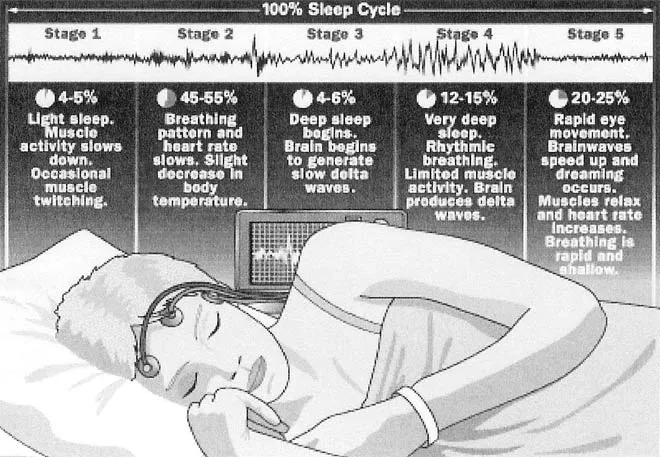
Sleep-Mate
Built in Sleep Programs
Just clip it on your Ear lobes sit back
close your eyes and enjoy
|
|
Catnap
 26
mins aprox |
Takes you
down into Delta holds you there for 10
mins then brings you back up |
Sleep
 20
Mins aprox |
Takes you down to 5hz
then lets your drop off naturaly |
Insomnia
 23
Mins aprox |
Takes you way down to
0.05 hz very low delta your body will do
the rest |
Wake up
 15
mins Aprox |
Feeling Drowsey need
to wake up, become more alert |
| |
 Fully
portable with Rechargable batteries included Fully
portable with Rechargable batteries included
 High
QualityEarclips High
QualityEarclips
 Instructions Instructions
The gift
of Sleep |
|
BT Pro With the sleepmate option
BT
Pro Multi system
 Full
LED screen Full
LED screen
 Built
in frequencies Built
in frequencies
 0.5
Hz 0.5
Hz
 1.5
Hz 1.5
Hz
 5.0
Hz 5.0
Hz
 7.83
Hz 7.83
Hz
 10
Hz 10
Hz
 100.00
Hz 100.00
Hz
 Plus
the Full BT6-BT11 Beck Protocol 1000.00 Hz +
111.00 Hz Plus
the Full BT6-BT11 Beck Protocol 1000.00 Hz +
111.00 Hz
 Over
500 Natural Harmonic frequencies Over
500 Natural Harmonic frequencies
 Fully
Rechargeable Batteries/Charger Fully
Rechargeable Batteries/Charger
 Timer
: 5 - 60 mins Timer
: 5 - 60 mins
 Intensity
Control Intensity
Control
 Very
portable Very
portable
 Instructions Instructions
 High
Quality Ear clips High
Quality Ear clips
 LCD
Screen LCD
Screen
|
BT Pro Master
Unit
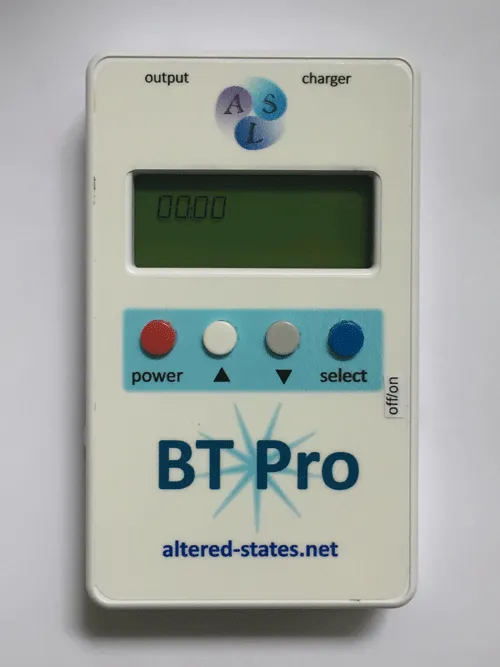
"Homeostasis can be defined
as the tendency for intrinsic balance within
a system. Application of a range of CES appears
to enhance the Balance of the biological central
nervous system. A change in one system within
the individual will have correlative effects
upon other systems. Improvements in mood, cognitive
function, self image, shift of Focus , control
to oneself, and sense of well being can be measured.
When CES works, it enhances one's ability to
handle or deal with situations that were previously
beyond the range of one's control."
|
Option
Bio-feedback
There is a relationship between
Stress and the Electrical conductivity of the
skin. This is known as Galvanic Skin Response
or GSR. |
Free
Option allows one to measure GSR
Skin conducts electric current
like a Resistor. The resistance of Skin can vary
from 25 Kilo Ohms to 2 Mega Ohms depending on
the Emotional state (This varies from person
to person ).This variation is due to the changes
in the permeability of the skin. In a normal
fully relaxed person, skin resistance will be
around 2 Mega Ohms. This is due to the low permeability
of the skin. Skin offers high resistance and
restricts the current flow. But if the same person
is in stress, his skin resistance reduces to
25 Kilo Ohms or less due to leakage of water
from the blood vessels and subsequent sweating.
This increases the electrical conductivity of
the skin. Thus the electrical conductivity of
the skin and Stress are directly related
Bonus
with BT Pro Unit |
Sleepmate
Option
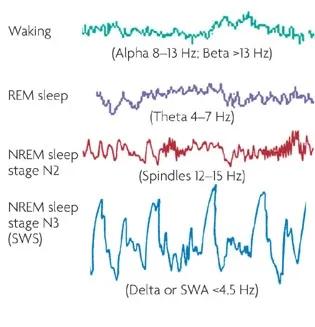
What would you do to feel good and get
a better night’s sleep???????
Difficulty falling or staying asleep is a common problem. About half of Americans
report sleep difficulty at least occasionally, according to National Sleep
Foundation surveys. These woes - called insomnia by doctors - have far-reaching
effects: a negative impact on concentration, productivity and mood. Most of
us don't know much about sleep, not even our own and to make it worst ----
sleep problems have a profound effect on our sleeping and waking life |
Unlocking
this Option gives you the full potential
of the SleepMate
 Unlock
code plus you will be sent these: Unlock
code plus you will be sent these:
 Sleepmate
Coil and Lead+ Sleepmate
Coil and Lead+
 Sleepmate
Driver Sleepmate
Driver
 |
Catnap Takes you down
into Delta holds you there for 10 mins
then brings you back up |
 |
Sleep Takes you down to 5hz then
lets your drop off naturally |
 |
Insomnia Takes you way down to 0.05
hz very low delta your body will do
the rest . |
 |
Wake up! Feeling Drowsy need to wake
up, become more alert? |
 Add Sleepmate option Add Sleepmate option
|
|
Do you have the
BTPro ?
Add sleepmate option
 The
terms of sale Please Read them before you order
The
terms of sale Please Read them before you order



